Today we bring you a new resin printer with a name that is very familiar to us for this type of printers but from a different brand than the one we knew for these models.
The PioCreat HALOT-X1 is a 16K LCD resin 3D printer that has captured attention for its innovative features and focus on ease of use clearly focused for home use.

And yes, you may be wondering who is PioCreat 3D? and how is it that they launch a printer with a name normally associated with another well-known brand in the 3D world.
PioCreat 3D is a branch or a company in close collaboration with Creality, especially known for its filament printers and perhaps less for its ranges of resin printers that we have analyzed on occasion.
However, PioCreat is taking over the entire segment of resin printers of the Halot brand and that Creality can concentrate on other products such as filament printers, lasers, 3D scanners, etc. In fact, the founder of PioCreat was one of the co-founders of Creality.
As always, before continuing with the article, remind you that you can join 3DWork on our Telegram channel full of 3D printing deranged, or on our social networks Facebook, Twitter, Instagram and YouTube.
PioCreat HALOT-X1
The HALOT-X1 is distinguished by several features that seek to improve the user experience and print quality:
Unlike traditional resin printers, where the build platform goes up and down, on the HALOT-X1, the resin tank, screen, and light source move vertically, while the build platform remains fixed on top.

This innovative design aims to reduce vibrations, improve Z-axis stability, and ensure consistent take-off force, which theoretically translates into smoother and more accurate prints, especially on tall parts.
This system also allows for a theoretical “self-leveling”, eliminating the need for manual adjustments in that aspect.

As well as a mechanical fixing system of the platform to the chassis allowing it to remain very firm during printing and once finished it can be removed effortlessly.

If you already liked the above as a novelty, the following for those who already know resin 3D printers will love it… The platform has a mechanism to be able to extract our impressions quickly and easily!!

The mechanism consists of 15 grooves, which allows you to remove prints easily by turning handles on the sides of the platform. These grooves or platforms, through their movement, allow the model to be “ejected” without the need to apply force on the platform, in addition to avoiding damage to our parts.
Finally, we would like to highlight the resin tank anchoring system, which we found very comfortable to handle by fixing the tank firmly to the printer.

By the way, this PioCreat HALOT-X1 uses a new film called NACF, an improvement over ACFs, which promises greater durability, better resistance to temperatures and lower stresses during printing.
Seeing these systems in these printer ranges is great news for users!!
Now we are going to introduce you to an accessory that can be very useful for those users of the PioCreat HALOT-X1… AFU is an optional accessory that automates resin management.
It can automatically dispense the correct amount of resin needed for a print, replenishing the level and recovering the excess later after the job is finished. It also has a system for monitoring the weight of the resin bottle to control its availability.

It also uses RFID tags on the manufacturer’s resin bottles to identify the type of resin and adjust the printing parameters automatically, contributing to the ease of use… or not, as we will explain later.

In addition, it can heat the resin to 40°C in three minutes to reduce viscosity and improve adhesion, something we will also discuss in more detail later.

Moving on to the optical section, the PioCreat HALOT-X1 incorporates a 10.1-inch monochrome LCD screen with a resolution of 15,120 x 6,230 pixels, which translates into a pixel size of 14×19 μm. This allows for an extremely fine level of detail in prints.
Another good news is that it comes with a screen protector to minimize damage in the event of accidents.

Another innovative aspect of this PioCreat HALOT-X1 is its UV matrix with intelligent 92-Zone exposure system that delivers a theoretical 6000 μW/cm² of light intensity.

This system activates UV light only in areas where it is necessary for resin curing. This can improve the accuracy, prolong the life of the LCD screen and the UV system.
Something we definitely loved is the compact design for the print volume. The machine is surprisingly compact (344 x 331 x 434 mm) but offers a considerable print volume of 211.68 x 118.37 x 200 mm. It is about 20-30% smaller than other machines.

While we have commented that the PioCreat HALOT X1 is very compact, it is also surprisingly heavy, suggesting a quality construction and contributing to stability during operation.
It also has a flip-top that opens backwards. This has always seemed like a great solution to us, as less space is usually required for the machine and its handling.
In addition, it incorporates sensors that prevent printing from starting if the lid is not closed for safety.
We also have a touchscreen and USB port on the top, which makes them easily accessible and reduces the likelihood of accidental resin spills.

Currently, resin 3D printers are significantly improving both in their specifications and in ease of use, integration and remote management.
This PioCreat HALOT-X1 is integrated into the Creality Cloud ecosystem, we can use the laminator specially designed for PioCreat printers and compatible with the HALOT-BOX, OTA firmware updates to always have the machine updated with the latest improvements.

However, don’t worry, the HALOT-X1 will be compatible with other laminators such as Chitubox and probably Lychee, and can even transfer projects directly.
As a summary we include a table with all the specifications of this PioCreat HALOT-X1:

As you have seen, the PioCreat HALOT-X1 is, on paper, a great machine at a great price… Now that we know it better, let’s look at the commissioning process and truly evaluate the machine.
PioCreat HALOT-X1 – Unboxing and first impressions
Now that we know much better the most important features and specifications of the PioCreat HALOT-X1 we are going to show you the unboxing process and first tests.
The start-up, as is usual in this type of machine, is a fairly simple process… for which we advise you to carefully follow the instructions in the user manual included in the kit.
As a first step we will remove the printer from the packaging and we will remove all the protections, inside these we will find the printing platform and a box with spare parts, accessories and tools.
Although the packaging and the printer have a contained size, we were amazed by the weight of the set, something that usually indicates a good chassis/mechanical construction.

The box containing the kit includes everything necessary for commissioning, maintenance and accessories. In the following list you have the content of it:


As we have already mentioned, the PioCreat HALOT-X1 is a very compact machine for the volume of printing it has and also has a good chassis, althoughthe exterior materials are correct they do not give the feeling of a premium machine.

An important aspect, although not usually paid much attention is that this HALOT-X1 does not have legs that allow the machine to be leveled, something especially important in resin machines and if the location where it is going to work does not have a good leveling.

On the back we have the power supply connection and switch and the connections for the AFU. On the top we also have two USB connections of different types.
We have to say that having the power switch on the back seems a nuisance, as well as the USB connections on the top that, even though accessible, tend to bother when manipulating the printer on many occasions… hopefully for future versions PioCreat 3D will improve this.

Of the resin tank, highlight its good construction, the anchoring system and the detail to empty resin in a simple and comfortable way. The screen/UV light assembly also looks very good together with the double motor in its kinematics as we already saw.

Similar sensation that of the printing platform and its anchoring to the chassis, it looks robust and good materials.
As we mentioned before, the kinematics of this HALOT-X1 are unique, but it still uses the typical limit switches to carry out the homing process and we have another sensor to control the status of the folding dome.


Once the printer is ready, following the steps indicated in the manual, we perform our first test using a test figure available on the printer itself. The truth is that in order not to make any adjustments or tests it went very well… by the way, we used the PioCreat HALOT 16K Standard resin which we really liked the results with.




We have an accessory to remove our platform without staining the printer that together with the platform system for the extraction of parts quickly and easily are very useful.
In the following video you can see the process, we do not have the tray to protect from resin residues to be able to better show the process but it is a more than advisable accessory to use.


Before starting to work on the HALOT-X1 we started to install and use the AFU since having a resin management system that controls the temperature of the resin is a great improvement to take into account depending on the needs of the user.

The kit comes in a fairly compact box and includes the AFU and components of it. Once we extract it, the installation is quite simple… attach the cannula to the cap for the resin canister and install the driver inside the printer. Finally, we will connect the tubes, one to the bottle cap and the other to the HALOT-X1, where we will also connect the USB-C cable.

Once installed, the system will detect the AFU and we will be able to use it and configure its options such as heating temperature or resin filling/emptying… It is interesting to be able to see the weight of the jar that can serve as a reference to see how much resin we have available.

Below, you have PioCreat 3D’s unboxing video for this HALOT-X1 that you can find on his Youtube channel:
PioCreat HALOT-X1 – Tests and user experience
Overall, the HALOT-X1 has proven to be a machine capable of producing high-quality and highly detailed prints but the user experience has not been as satisfactory as we would have liked… It should be noted that we have had a test unit and that PioCreat 3D has been listening and even implementing firmware changes based on our suggestions, something to take into account and appreciate.
At the level of construction of the machine it is correct in its general finishes using plastics on its exterior but where we can highlight is in its chassis construction that is very robust. Although we would have loved to have included a system of adjustable legs to correctly level the printer to the work surface.

As we have already mentioned, its differentiating system with respect to other printers is that the tank/optical system set is the one that moves, leaving the platform fixed, all thanks to a double motor and kinematics that provide great stability during printing even with tall or large parts.
As we saw in the unboxing section, the implementation is simple and generally easy to use, although we would like to clarify some aspects of usability. On the one hand, and for us, there is the usability when it comes to manipulating the machine physically and on the other the management of the machine through the screen or remotely… And this is where we have a few things to highlight.
From our point of view the PioCreat HALOT-X1 is excellent in physically handling the machine… We liked features such as the flip-top top, free leveling system, the platform handling system and its quick parts removal system.


The free leveling system is great, but we have observed some inconsistency with the dimensional accuracy obtained in the Z axis of between 0.1-0.3mm, where the parts are compressed, and although normally it should not affect the skid, it is important to highlight this.
On the other hand, the platform’s impression extraction system, which is usually sensational, will not work on small parts, it can even cause problems if they coincide with the indentations in the system.
Also this system will make it impossible to print something directly to the platform since it will leave marks on the part, in this aspect PioCreat 3D told us the possibility of having a platform without this mechanism and look to review it in the future.
To finish with the platform section, it should be noted that this quick parts release mechanism complicates the cleaning of the platform a bit when finishing our prints.
The management from the screen with a correct interface but that has to continue to improve and evolve, the system of menus and options are sometimes confusing and complex to find/understand... although we also have to say that thanks to the feedback of the reviewers PioCreat 3D has been working on improving this aspect so we hope that the final product reaches the most polished user.

In terms of usability, the HALOT BOX laminator has seemed limited in some options, such as the lack of advanced media editing functions, compatibility problems and occasional crashes… PioCreat must continue to improve it.
On the other hand, we can use Chitubox as a laminator and probably Lychee soon, which is great news for users.
Something that we did like is the possibility of integrating our PioCreat HALOT-X1 to Creality Cloud and in this way be able to remotely monitor our printer. It is expected that an option to add a camera for monitoring or time-lapse will be available shortly.

We also have to say that we have had some problems with the remote management options, especially sending jobs over WiFi to the machine directly as well as joining it to certain networks.

In terms of print quality, we have obtained figures with great sharpness and quality at the height of a 16K machine and with a % of minimal printing failures in our case.

One aspect, which we already mentioned in the section on the specifications of the machine, is that despite the fact that the manufacturer indicates that this HALOT-X1 mounts a 10.1″ screen calculating the total dots and pixel size, we do not have the calculations… Apparently the mounted panel has around 9.55″ of useful screen.
It’s something that isn’t going to be dramatic either, but probably brands should be more transparent in this aspect because PioCreat 3D is not the only brand that has been doing these things lately.
As for the UV light source, we thought it was great to have that 92-point intelligent matrix that illuminates only the necessary areas, theoretically improving the accuracy and lifespan of the screen.
We also believe that due to the peculiar kinematics of this printer, the use of more traditional COB light sources was not a viable solution.

The reality is that we noticed that sometimes some prints were not seen so clearly either because of this new intelligent matrix system that has to continue improving or perhaps because of an excess of power, and that we have not seen how to adjust easily.

For example, in this piece, a predator from the movie Prey, the details obtained were excellent although in the photos it is not usually fully appreciated:

While there is another piece, a Hellboy that we have already printed other times, we got the feeling that the details of the textures were somewhat blurred compared to other prints made on other printers:

Again, it is something very subtle and that we have only seen in some prints, not in a generalized way, perhaps being attributed to the placement of the parts with respect to the intelligent lighting system or simply to different printing conditions.
We did quite a few projects with this HALOT-X1 and we have to say that the overall print quality and reliability were excellent without a single failure even filling the platform to the maximum or with large and heavy parts.







One of the recurring problems is that the printer, by default, uses its own internal parameters instead of those defined in the slicer.
This requires us to manually change the parameters before each print, which we have found exasperating and frustrating.
PioCreat 3D has indicated that they plan to change this process to better suit the user’s preferences.
Regarding the AFU accessory, resin management system and although it is a good idea, the pumping system can sometimes be slow and uncomfortable… Especially the cleaning process when changing resin is a hassle.

In addition, the heating of the resin occurs when it is fed, passing through an internal heater in the internal pumping system of the AFU, but it does not keep it continuously warm in the resin tank, which may not be entirely optimal like other integrated systems.
In our test unit, the PioCreat HALOT-X1 is a bit noisy at times, although PioCreat has told us that this should not happen in production units.
As we always say, draining our prints to recover resin and avoid excessively contaminating the detergents used in post-processing is something that we think is essential.

In our case we designed a small piece for it that you can find in Printables or Makerworld.
Since we discussed the issue of wringing out our prints we noticed that, either without or with the wringing system mentioned above or both at the end of the print and during it, we have seen that the resin can splash resin outside the tank that will normally stain the lid.
Where to buy the PioCreat HALOT-X1?
PioCreat 3D has the HALOT-X1 in its online store where you can directly buy the printer, accessories, spare parts and consumables.
PioCreat HALOT-X1 – 3Dwork Analysis
The PioCreat HALOT-X1 16K is a resin 3D printer that ventures with interesting innovations in its mechanics and design, especially with its mobile tank/screen/UV system and fixed platform, and its quick release mechanism of parts on the print platform.
Normally these radical changes create a certain ecscenicism but PioCreat 3D has placed a lot of emphasis on the work of exhaustive test and verification to ensure that the HALOT-X1 is a reliable and robust machine.

It offers good detail quality and is easy to use overall, making it an attractive option for hobbyists looking for quality and consistent results.
However, there are aspects such as the optimization of the slicer software, the screen interface and the management of the printer’s default exposure parameters that PioCreat 3D has to continue to improve. The AFU accessory is promising for resin management, but it has room for improvement in its speed, comfort and concept as we mentioned above.

Its unique features, such as the motion system, quick-release plate, and optional AFU, position it as a different and promising machine that seeks to deliver a smoother, high-quality resin printing experience.


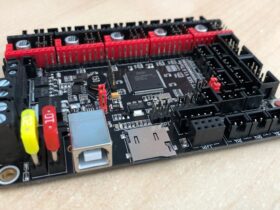
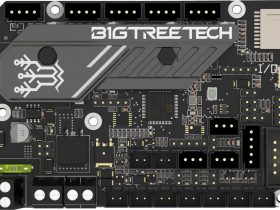
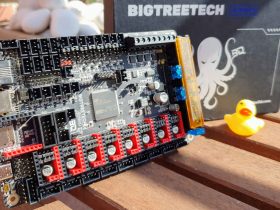
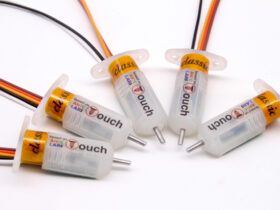


























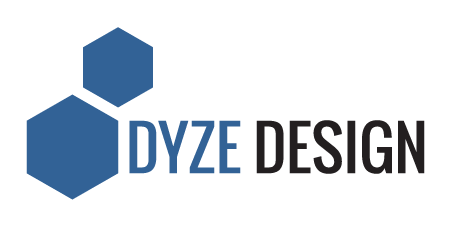
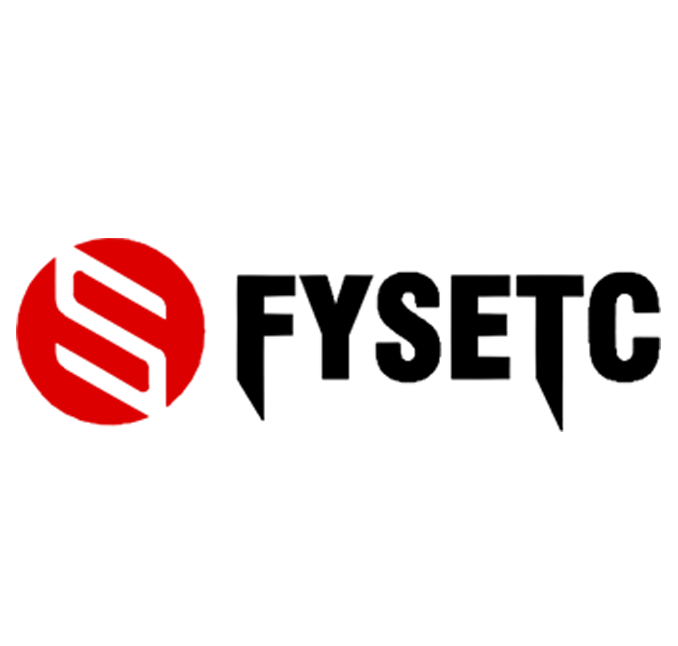












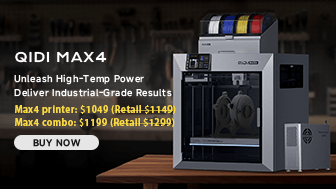
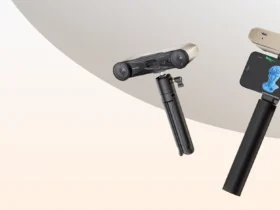
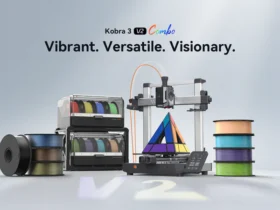
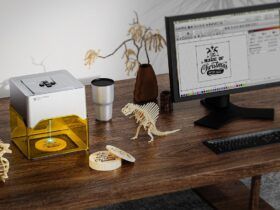














Déjanos un comentario